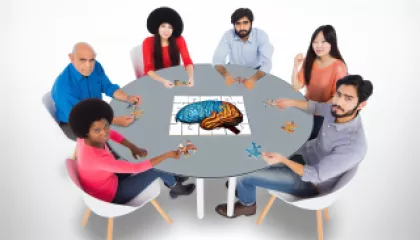What Are Cognitive Biases and How Can You Overcome Them?
Have you ever wondered why we sometimes make poor decisions or come to incorrect conclusions, even when we think we're being logical? The answer may lie in cognitive biases. These unconscious mental shortcuts can greatly influence our thought processes and decision making. In this article, we'll delve into the world of cognitive biases, exploring what they are, how they affect us, and ways we can overcome them.
What Are Cognitive Biases?
Cognitive biases are systematic errors in thinking that occur when people process and interpret information in the world around them, affecting the decisions and judgments that they make. They're often a result of our brain's attempt to simplify information processing. They don't always lead to problems, but when they do, they can lead to perceptual distortion, inaccurate judgment, or illogical interpretation.
Types of Cognitive Biases
There are many types of cognitive biases. Here are some of the most common ones:
- Confirmation Bias: This is our tendency to seek out and favor information that confirms our existing beliefs while ignoring or discounting contradictory evidence.
- Overconfidence Bias: This happens when we overestimate our own abilities or the precision of our beliefs.
- Availability Heuristic: This bias leads us to overestimate the likelihood of events with greater "availability" in our memory, which can be influenced by how recent the memories are or how emotionally charged they are.
- Hindsight Bias: Also known as the "knew-it-all-along" effect, this is our tendency to see past events as being more predictable than they actually were at the time.
Understanding these biases can help shed light on why we might think or behave in certain ways, especially when confronted with decision-making or problem-solving.
How Do Cognitive Biases Impact Us?
Cognitive biases can have a significant impact on various aspects of our lives, from how we make decisions to how we interact with others. They can influence our behavior, our perceptions, and our interactions in ways that we may not even be aware of.
In Decision Making
Biases can lead us to make decisions that are not in our best interest. For instance, the overconfidence bias might lead us to take risks that are too great, believing that we're more capable than we actually are. Or the confirmation bias might cause us to ignore important information that contradicts our beliefs, leading to a poor decision.
In Relationships
Our relations with others can also be affected by cognitive biases. For example, the confirmation bias might cause us to interpret other people's actions in a way that confirms our pre-existing beliefs about them, leading to misunderstandings or conflict.
In Perceptions of the World
Cognitive biases can also shape our perceptions of the world around us. For example, the availability heuristic might cause us to overestimate the prevalence of events that are memorable or emotionally charged, leading to an inaccurate understanding of reality.
How Can You Overcome Cognitive Biases?
While it's impossible to completely eliminate cognitive biases, being aware of them and understanding how they work is the first step toward overcoming them. Here are some ways you can work to mitigate their impact:
Seek Out Contradictory Information
One of the effective ways to combat cognitive biases is actively seeking out information that contradicts your existing beliefs. This can help counteract the confirmation bias and provide a more balanced perspective.
Slow Down Your Thinking
Many cognitive biases come into play when we make quick, automatic decisions. Taking the time to slow down, consider different options, and think things through can help reduce the influence of these biases.
Seek Diverse Perspectives
Getting input from others, especially those with different viewpoints, can also help mitigate cognitive biases. Others may see things you've overlooked or have different interpretations that challenge your own.
Reflect on Past Decisions
Reflecting on past decisions and outcomes can also be useful. This can help you identify instances where biases may have influenced your decisions, allowing you to adjust your thinking in the future.
Conclusion
Cognitive biases are inherent parts of human cognition, influencing our judgments, decisions, and interactions. While we might not be able to completely eradicate them, awareness and understanding of these biases, coupled with active strategies to mitigate their impact, can lead to better decision-making and improved interpersonal relationships. So the next time you find yourself making a snap judgment or decision, take a moment to consider what cognitive biases could be at play, and use this awareness as a tool to guide your thinking.
Remember, overcoming cognitive biases isn't about achieving perfection in decision-making, but about becoming more conscious of our thought processes and striving for objectivity. As we navigate our complex world, this mindfulness can serve as a valuable tool, helping us make more informed and rational decisions.








